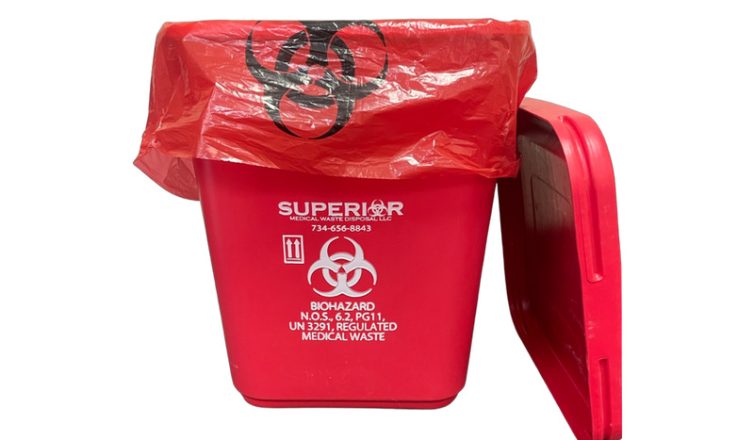Medical waste is a term used to describe any kind of waste material that is generated in the course of healthcare activities. This can include a wide range of materials, such as needles, syringes, surgical instruments, gloves, gowns, and even biological samples such as blood, urine, and tissue. Medical waste can be hazardous and pose a serious threat to the environment, public health, and safety. In this blog post, we will discuss what medical waste is, the different terms used for medical waste, the organizations that regulate it, and how to protect oneself from injury, liability, and regulations.
Different terms used for medical waste
Medical waste is often referred to by different terms depending on the context. Some of the most common terms used for medical waste include:
- Infectious waste: This refers to any waste that contains infectious agents or other potentially harmful microorganisms, including bacteria, viruses, and fungi.
- Biohazardous waste: This refers to any waste that contains biological material, including human or animal tissue, blood, bodily fluids, and other potentially infectious materials.
- Sharps waste: This refers to any waste that includes sharp objects, such as needles, syringes, and other medical instruments that can puncture the skin and cause injury.
- Biomedical waste: This refers to a specific type of medical waste that is generated during the diagnosis, treatment, or immunization of human beings or animals. It includes any waste that is generated in healthcare facilities, research laboratories, or any other facility that produces or uses biological materials, including blood, tissues, organs, and other bodily fluids. Biomedical waste can be infectious, toxic, or radioactive and requires special handling and disposal to prevent harm to human health and the environment.
- The Environmental Protection Agency (EPA): The EPA is responsible for regulating the disposal of hazardous waste, including medical waste. The agency provides guidelines for the proper disposal of medical waste and enforces regulations to ensure compliance.
- The Occupational Safety and Health Administration (OSHA): OSHA is responsible for regulating workplace safety, including the handling and disposal of medical waste. The agency provides guidelines for the safe handling and disposal of medical waste, and enforces regulations to ensure compliance.
- The Centers for Disease Control and Prevention (CDC): The CDC provides guidance on the safe handling and disposal of medical waste, including recommendations for infection control and waste management.
- Proper training: All healthcare workers who handle medical waste should receive proper training on the safe handling and disposal of medical waste. This training should include information on the different types of medical waste, how to identify and segregate waste, and how to use personal protective equipment (PPE) such as gloves and masks.
- Using appropriate PPE: Healthcare workers should use appropriate PPE when handling medical waste, including gloves, masks, and gowns. This can help protect them from injury and exposure to infectious agents.
- Following proper disposal procedures: Healthcare workers should follow proper disposal procedures for medical waste, including segregating waste by type, labeling containers, and disposing of waste in accordance with local, state, and federal regulations.
- Regular inspections: Healthcare facilities should conduct regular inspections of their waste management systems to ensure compliance with regulations and identify any areas that need improvement.
Organizations that regulate medical waste
There are several organizations around the country that regulate medical waste, including:
Protecting oneself from injury, liability, and regulations
There are several steps that healthcare workers can take to protect themselves from injury, liability, and regulations when handling medical waste. These include:
In conclusion, medical waste is a serious concern for public health and safety. Healthcare workers and facilities should take steps to properly handle and dispose of medical waste to protect themselves, the environment, and the general public. By following proper procedures and guidelines, healthcare workers can reduce the risk of injury, liability, and regulatory violations associated with medical waste disposal.
